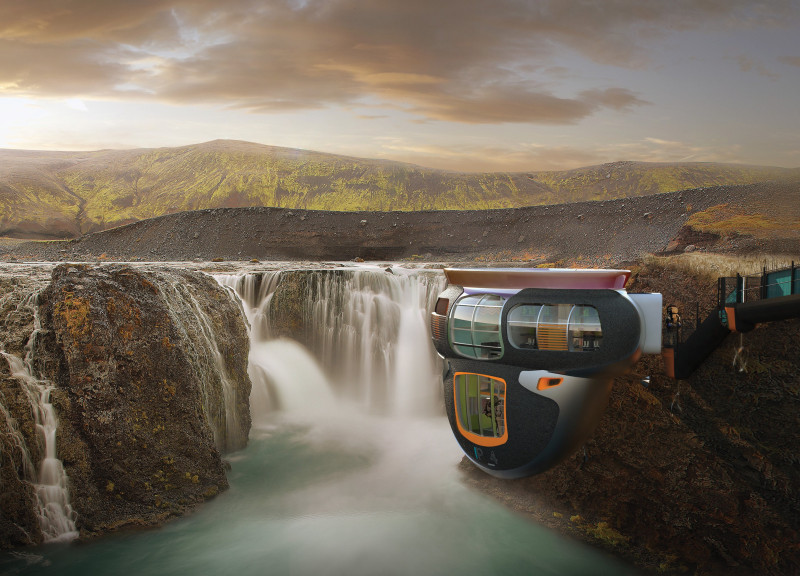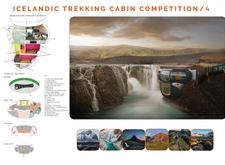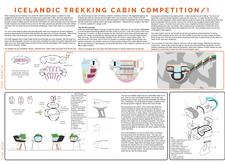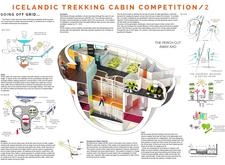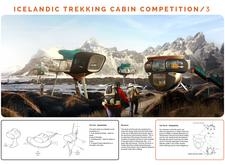5 key facts about this project
## Overview
The Icelandic Trekking Cabin project presents sustainable lodging solutions within Iceland’s varied landscape, responding effectively to the needs of outdoor enthusiasts. The principal design, "The Perch," serves as a multilevel accommodation, while its complementary structure, "The Pod," caters to smaller groups. Both structures prioritize functionality and ecological integration, reflecting an intention to offer practical yet comfortable living spaces amidst the challenges of the Icelandic environment.
### Spatial Strategy and User Experience
The Perch is designed to accommodate up to eight individuals, balancing communal and private spaces to foster interaction among guests while ensuring personal privacy. Its multilevel layout is aligned with the natural topography, allowing for expansive views and minimal disruption to the surrounding ecosystem. The Pod, while smaller and more intimate, prioritizes comfort, featuring luxurious amenities suitable for couples or small families. Together, these designs create versatile living environments crafted for both social engagement and personal retreat.
### Material and Sustainability
Materials selected for both structures emphasize durability and low environmental impact. The external aluminum skin enhances structural integrity while reflecting local conditions, while interior wood finishes add warmth and comfort. The buildings utilize advanced insulation materials to maintain thermal stability against Iceland's harsh climates.
The design incorporates innovative systems for water management—such as rainwater collection and greywater recycling—alongside renewable energy solutions, including photovoltaic panels and strategically placed wind turbines. These systems not only enhance livability but also align with sustainable practices, featuring mechanical ventilation heat recovery systems to optimize energy use.
The distinctive sculptural forms of both structures echo natural elements, allowing them to blend with the rugged terrain. Additionally, their elevated designs mitigate the need for extensive foundations, preserving the landscape beneath and contributing to a visually coherent experience within Iceland’s wilderness.


